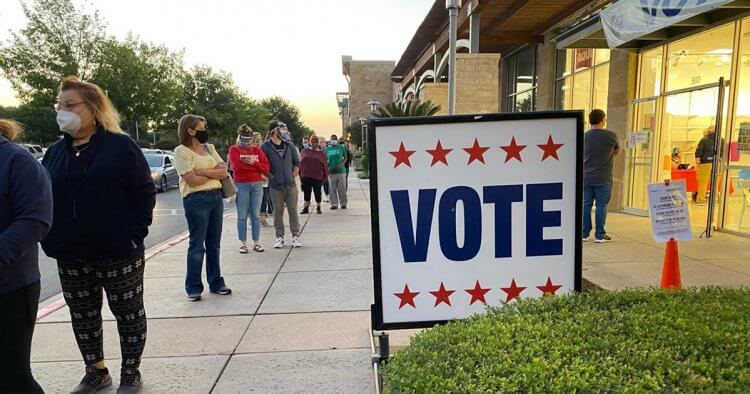Serious errors committed by the Census Bureau may end up impacting the 2024 election, experts warn.
A Census Bureau study published in late May shows that Republican-leaning states were under-counted by statistically significant margins, while Democrat-leaning states were over-counted by statistically significant margins. The census, mandated every 10 years, was conducted during the pandemic.
The Wall Street Journal Editorial Board highlighted the undercounting in a late May piece, writing, “Remember how Democrats accused the Trump administration of trying to rig the 2020 Census? Now a Census Bureau study reveals that Republican-leaning states may have been hurt by mistaken under-counts.”
States that had large over-counts included Hawaii, Delaware, Rhode Island, Minnesota, New York, Utah, Massachusetts, and Ohio, the WSJ noted, and states that under-counted include Arkansas, Tennessee, Mississippi, Florida, Illinois, and Texas.
In Florida, for example, two additional congressional seats were expected to be added following the 2020 census. The state only gained one, but if the census had been properly counted, it would have gained two.
“Texas was under-counted by about 570,000 people while New York was over-counted by 695,000,” The Wall Street Journal noted, highlighting that “the inaccuracies may have cost Florida and Texas an additional House seat and given Rhode Island and Minnesota one they shouldn’t have received.”
“New York might have also lost another House seat if the Census were more accurate,” the board continued. “So how did the bureau get the counts so wrong? The bureau blames the pandemic.”
The 2024 election will already be a close race — “perhaps the closest” in history, Kristin Tate writes for The Hill.
“Last week’s Census Bureau announcement of serious errors will impact the next decade’s congressional apportionment and delegations, and play a crucial role in the presidential race,” Tate said. “Given the nature of the mistakes, Democrats could hang onto the presidency under particularly controversial circumstances due to publicly-acknowledged errors.”
Tate notes that accurately counting every person in a nation is “a logistical challenge, to be sure,” but noted: “it is difficult to understand how the Census Bureau missed more than 5 percent of the populations of Arkansas, Delaware and Hawaii.”
The 2020 census resulted in “significant changes to congressional seats apportioned to states,” Tate said: North Carolina, Florida, Montana, Colorado, and Oregon each gained one congressional seat while Texas gained two, and New York, Pennsylvania, West Virginia, Ohio, Michigan, Illinois, and California all lost one seat each.
“Simply put, the revised figures show that (mostly) red states had even quicker relative population growth compared to the rest of the country — and especially compared to (mostly) blue states,” she continued. “It is entirely possible that undercounted states could have gained at least one seat in Congress, while overcounted states may have lost at least one each.”
Each lost or misplaced seat is “crucial,” Tate emphasized, pointing to the census bureau’s admission that it overcounted over 600,000 New Yorkers and undercounted almost as many in Texas.
“Last year,” she wrote, “media coverage lamented that New York lost a member of Congress by being 89 residents short. With the revised, accurate numbers, New York may have lost a second seat — had the corrected numbers been available earlier.”
This is an excerpt from The Daily Wire.




